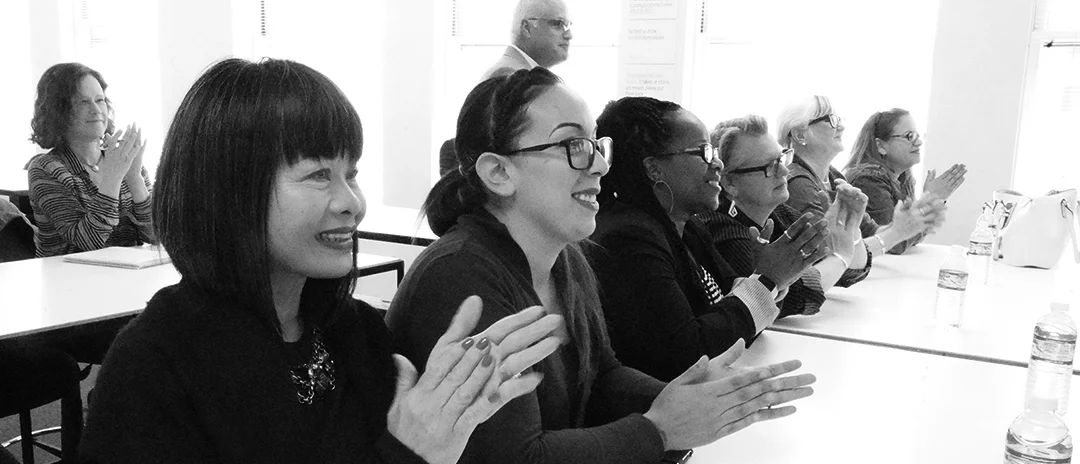Spotlight on Dorick Scarpelli, VP of College, Career, and Reentry Pathways
To write poetry is to be vulnerable, to feel free. To trust the people around you.
Teaching literature and lyric art in a jail, an underworld environment designed around confinement and censorship, was perhaps the least likely place Dorick Scarpelli envisioned his future.
But in 2003, that’s exactly what the transplanted Massachusetts-born-and-raised 20-something guy found himself doing when he met a “very passionate” woman named Sunny Schwartz (founder of Five Keys). “I remembered going into my interview at the Sherriff’s Office and was so moved by her powerful vision and passion around launching a restorative justice program.”
“Would he consider joining on,” she asked.
Armed with a Master’s in Fine Arts from Goddard College and an Ivy League fellow and undergrad from Brown University, within a month, Dorick found himself designing lesson plans. He’d done some work previously as a creative writing instructor for teens inside a juvenile detention facility. But after moving with his brother to San Francisco, he was ready to get serious about being a changemaker.
As Five Keys launched its first schools for the incarcerated, Dorick rolled in a chalk board, planted himself in the center of the dorm pod at San Francisco’s former County Jail #2 Annex on Bryant Street and went to work. There, in a place meant to contain them, he encouraged female inmates to channel their emotions into poetry. Later he taught at the men’s dorm in San Bruno.
Maybe it was the culture code, the prevailing resistance to education among the deputies, or witnessing up-close what he calls “not exactly humane treatment.” Certainly, the wounds of the criminal justice system have played a major role in propelling and reinforcing Dorick’s lifelong calling to right social justice wrongs and his steadfast devotion to helping the wounded and traumatized find their voice.
Fast-forward 20 years. Today, as VP of College, Career, and Reentry Pathways for Five Keys, Dorick walks with people from setback to comeback. Wearing many hats, he manages government and private contracts and partnerships throughout northern California and the Los Angeles area that support workforce development and college pathways for Five Keys students. He supervised Five Keys’ mobile classroom program and re-entry programs, along with Five Keys Home Free, a Treasure Island-based trauma-informed reentry program for criminalized survivors of domestic violence and human trafficking. He has also served as one of the executive sponsors of Five Keys’ Abide Council (Advancing Belonging, Inclusion, Diversity and Equity).
“Dorick is definitely one of the driven changemakers,” says Karen Levine, a social justice activist, and former program coordinator at the San Francisco Sheriff’s Department who joined forces and has served alongside Sunny and founders since the very beginning. Currently she runs WomanAlive, a violence prevention course for the women of Home Free, survivors of violence. “Dorick has his finger on the pulse of the program and does everything to support it and to help provide the resources for the women to re-educate and gain vital communication and intimacy skills to prevent violence in their lives again.”
Dorick Scarpelli (pictured left) at the Five Keys NorCal Class of ’24 graduation
Dorick’s most celebrated role is dad to Arlo, 11, and Teddy, 9, and husband to wife Lauren Dietz, who is currently studying geriatrics at UCSF to become a Nurse Practitioner. Both Lauren and Dorick are active managers for the boys’ soccer teams and during their “free time,” enjoy backpacking and getting out into nature with family time.
Growing up one of seven children, Dorick’s passion for racial justice and serving the underserved began in childhood. The strong faith of both his parents and Catholic social thought served as a guiding light. His father was a career educator and administrator in the public school system in Rockland, supporting students in a small working-class community and his mother was committed to helping others as a social worker.
“What I love about Five Keys is how innovative and tireless everyone is about changing intolerable social justice problems,” says Dorick. “Everyone is not afraid to experiment, to innovate and everyone really, really cares. What I love too is working with people who have turned their lives around, people who remind us that there is always hope, that we all deserve second chances.”
Dorick Scarpelli (pictured right) at the Five Keys 20th Anniversary Celebration on October 26, 2023
Dorick formerly was a Senior Advisor for the New York City Office of Mayor, Health & Human Services, and Center for Economic Opportunity, winner of the 2012 Harvard Kennedy School’s Innovations in Government Award, and the Young Men’s Initiative (YMI).
He was an Adjunct Assistant Professor at the NYU Robert F. Wagner Graduate School of Public Service, teaching “Criminal Justice Systems and the Impact on Communities.” He also directed a re-entry program that serves young adults involved in the criminal justice system in the Bronx and Harlem.
These days, Dorick says he is inspired daily by the women who run and live at Home Free.
Tammy Johnson and Sunny Schwartz at Home Free
“I think of Tammy (Johnson, residential program director) and how inspiring her lived experience is,” says Dorick. “It is a privilege to work with colleagues who remind me every day to never give up. They show me the value of hard work and a commitment to doing the right thing. And, I think of Sunny (Schwartz), my mentor who reminds me that we are obligated to push back against the injustices in society and that it is our responsibility to work to change them.”










